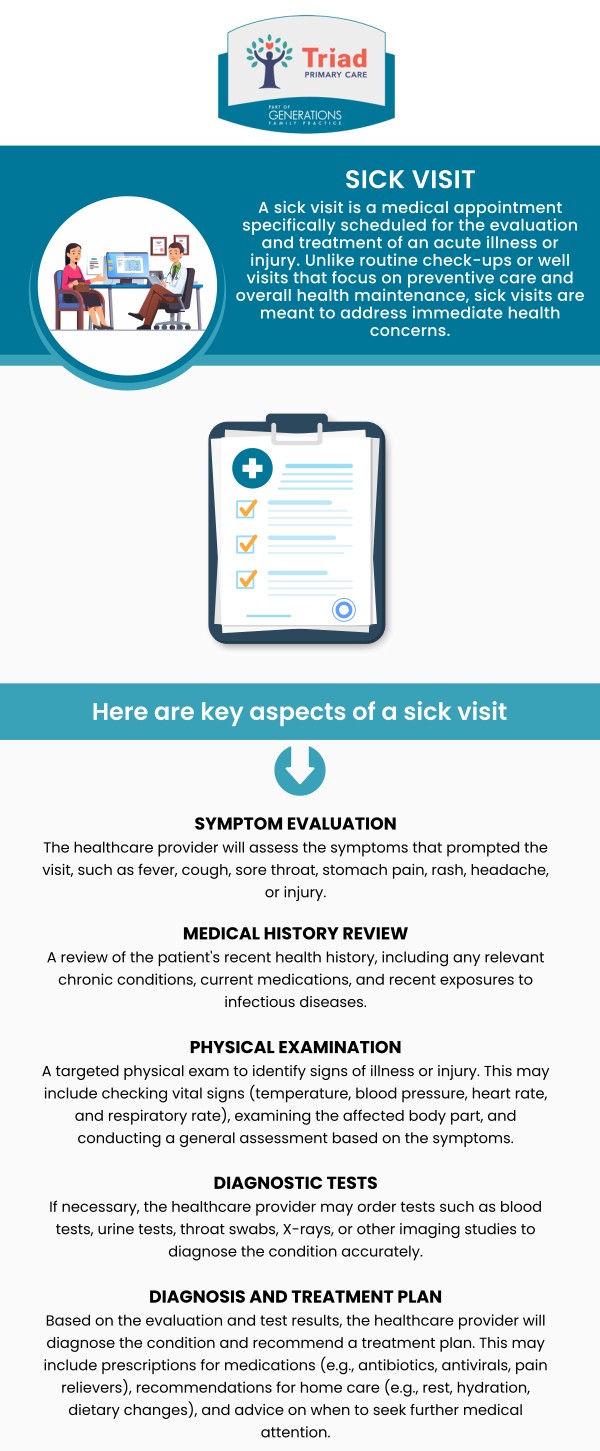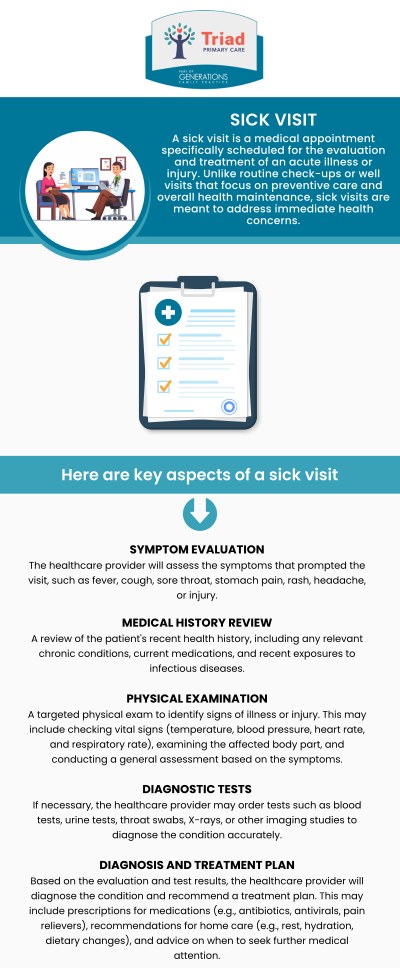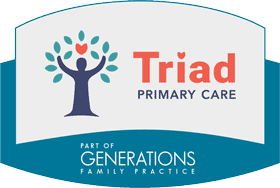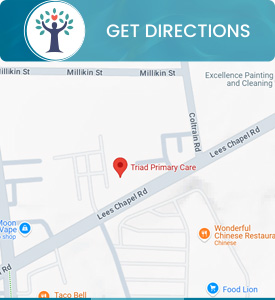When to Schedule a Sick Visit — And When to Wait
You should schedule a sick visit when symptoms are severe, persistent, or worsening, or if you’re unsure whether your condition requires medical attention. If symptoms are mild and improving, you may choose to wait and monitor your health. Dr. Cammie Fulp offers sick visits at Triad Primary Care to assess your condition and provide the care you need. For more information, contact us or book an appointment online. We are conveniently located at 1309 Lees Chapel Rd., Greensboro, NC 27455.


Every year in the United States, adults and kids suffer from more than a billion colds, about 50 million food-borne illnesses, and more than 40 million flu infections, plus many more illnesses and injuries with symptoms ranging from mild to severe. Knowing when to seek medical care and when it’s OK to wait can play a huge role in your overall health and wellness.
As a leading primary care practice, Triad Primary Care offers sick care for patients of all ages, helping every patient feel better while avoiding more serious problems. Here, our team offers some quick tips to help you decide when to call our office and when it’s OK to treat your symptoms at home.
When to schedule a visit
Sick visits play an essential role in relieving your symptoms and preventing more serious complications from developing. In general, you should call the office right away if you have any of these issues.
High or persistent fever
Fever is your body’s way of fighting off germs, making your body too warm for invading germs to “get comfortable” and multiply. However, if your fever is over 100°F, if it doesn’t go away after a couple of days, or if it gets worse, it’s time to seek medical treatment.
You should also call our office if your fever is accompanied by other symptoms, like:
- Rash
- Lethargy or significant fatigue
- Cough
- Vomiting or diarrhea
- Confusion or “brain fog”
- Neck pain or headache
If your child has a fever — even if it’s under 100°F — call the office right away so we can provide you with age-appropriate guidance.
Ongoing diarrhea or vomiting
Vomiting or diarrhea that lasts more than a day can cause dehydration and lead to serious medical problems. Call the office if you or your child exhibits these symptoms.
Chronic medical condition
Some underlying chronic medical problems, like heart disease, diabetes, or high blood pressure, can reduce your immunity or make some illnesses more serious. If you have a chronic medical condition and you don’t feel well, call the office and let us know.
Symptoms of infection
Infections can spread surprisingly rapidly, causing severe and even life-threatening complications. If you think you have any type of infection, including a respiratory infection, skin infection, or urinary tract infection, call the office right away.
Symptoms that are getting worse or lingering
While a low fever or mild stomach upset might not be anything to worry about, if your symptoms get worse or if they persist, it’s time to give our team a call. Lingering or worsening symptoms may be a sign of an infection or other problem that needs medication to get better and prevent complications.
When it’s OK to wait
When it comes to taking care of your health, the saying “better safe than sorry” takes on special importance. Still, there are some instances when it’s probably OK to monitor your symptoms for a little while before calling the office for a visit.
Mild cold or flu
If you have mild symptoms of a cold or flu, like a runny nose, slightly sore throat, or a low fever, treat your symptoms with rest, fluids, and over-the-counter medicine for fever or discomfort. Keep an eye on your symptoms, and if they worsen or linger, call the office right away.
Slight gastrointestinal upset
If you have mild diarrhea, nausea, or vomiting, monitor your symptoms and treat them with rest and dietary changes, like limiting foods or focusing on clear liquids until your symptoms clear up.
Minor cuts and abrasions
Minor wounds may be treated at home with careful cleansing followed by an antibiotic ointment and a bandage to keep the wound clean. Watch for any signs of infection, like swelling, redness, pus drainage, or pain, and call the office if these symptoms occur.
Mild allergy symptoms
If you have mild symptoms, like itchy eyes, mild cough, or sneezing, you can treat your symptoms with allergy medicines while you monitor for more severe reactions.
Care you need, when you need it
In addition to in-office sick visits, Triad Primary Care offers telehealth visits so you can receive the care you need without leaving the comfort of your home. To get the care you need to feel better, request an appointment online or over the phone with Triad Primary Care in Greensboro, North Carolina, today. We are conveniently located at 1309 Lees Chapel Rd., Greensboro, NC 27455. We serve patients from Greensboro NC, Browns Summit NC, McLeansville NC, Oak Ridge NC, Summerfield NC, and surrounding areas.


Additional Services You May Need
▸ Covid-19 Testing
▸ Medical Weight Loss
▸ Physical Exams
▸ Addiction Treatment
▸ Primary Care
▸ Lab Testing



